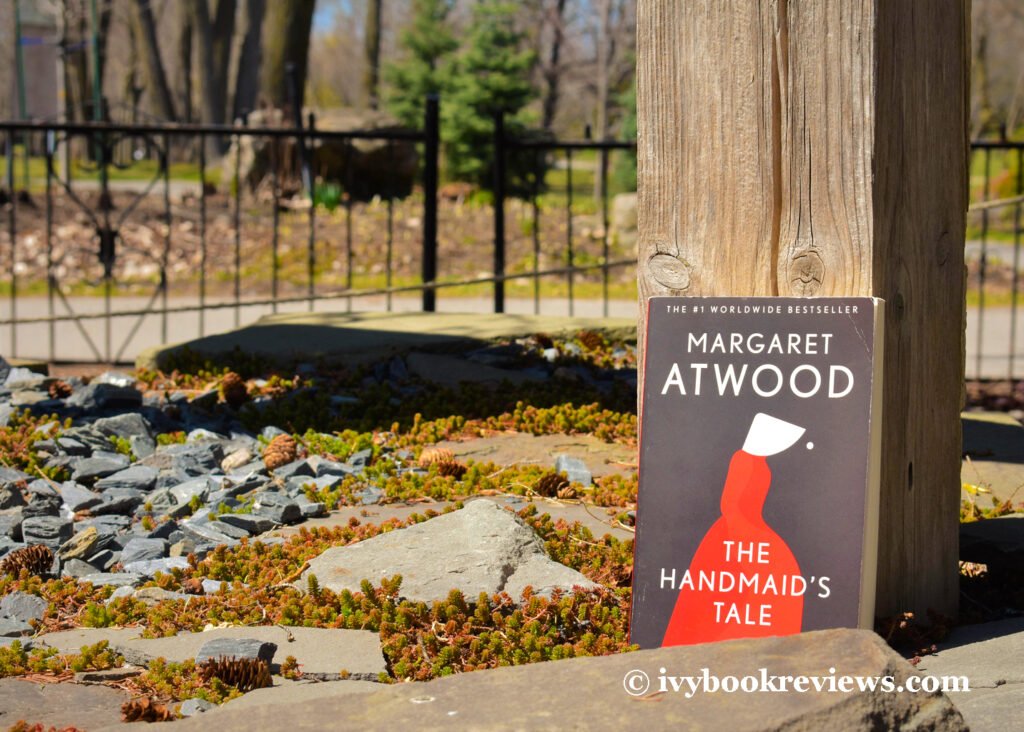THE HANDMAID’S TALE
Author: Margaret Atwood
Year: 1985
Edition: 2019 Paperback
Pages: 358
Genre: Dystopian Fiction
Additional info: The #1 Worldwide Bestseller
Winner and contender for many prizes and awards
Adapted into various media such as The Handmaid’s Tale – movie (1990) and The Handmaid’s Tale – television show (2017)
A sequel novel, The Testaments, was published in 2019
Summary
In Margaret Atwood’s dystopian future, environmental disasters and declining birthrates have led to a Second American Civil War. The result is the rise of the Republic of Gilead, a totalitarian regime that enforces rigid social roles and enslaves the few remaining fertile women. Offred is one of these, a Handmaid bound to produce children for one of Gilead’s Commanders. Deprived of her husband, her child, her freedom, and even her own name, Offred clings to her memories and her will to survive. At once a scathing satire, an ominous warning, and a tour de force of narrative suspense, The Handmaid’s Tale is a modern classic.
Why I chose to read this book
I bought this book for my mother’s birthday a few years ago; she is also an avid reader. I knew she would like this kind of story. She later lent it to me while I was pregnant back in 2020, but advised me to not read it while pregnant. As many of you may know, pregnancy hormones are especially intense, and emotions are heightened so even though I was intrigued, I didn’t argue and waited until my daughter was about 14 months old before reading it. I was heading to the hairdresser and grabbed whichever book I hadn’t read yet that could fit in my purse. I didn’t feel like mindlessly scrolling on my phone the whole time so I brought this book to read instead.
Thoughts & Opinions
I want to start by saying that this classic novel is incredibly well written. This took me back to why I fell in love with reading in the first place. When authors have this much talent, I’m in awe. When I read a book and think; wow, I would never have thought to describe something in that way, or come up with such unique allegories, that’s when I know I’m holding a work of art in my hands, and that is truly inspiring. I haven’t seen the television show or the movie adaptation of The Handmaid’s Tale so I started reading with only the summary as information.
I must say it was confusing at first because the narrator is talking about an established world that is different from ours. You get the feeling right away that it’s a dystopian world because nothing is quite right. It reads like a diary so you have to make your own conclusions sometimes but you get the gist of it pretty early on. They use terms for groups of people and each group has a different purpose. The way it’s being described is almost like a religious sect. The women in this book had their lives completely changed from one day to the next.
"Ordinary is what you are used to. This may not seem ordinary to you now, but after a time it will. It will become ordinary."- Margaret Atwood, The Handmaid’s Tale
I cannot even begin to describe how upsetting, scary and nightmarish this would be if it happened in real life. But unfortunately, it does, doesn’t it; I can’t help but draw a comparison to the fate of women in the real world who are repressed or trapped in a way of life that is not conducive to women’s rights or liberation. Sound familiar?
"We lived, as usual, by ignoring. Ignoring isn't the same as ignorance, you have to work at it."- Margaret Atwood, The Handmaid’s Tale
In recent years we have witnessed a global pandemic, war, and attempts to control women’s bodily autonomy, which have all proven just how easily our lives can be altered forever and how a new reality can rapidly be set in place. In this novel, the narrator tries to adapt to hers, and all of the women’s new reality while still holding onto hope that this cannot be how her story will end.
As humans, we often refer to humor as a coping mechanism so I was delightfully surprised at the little moments of dark humor. Some passages are just so ridiculous and unbelievable that they made me laugh out of sheer shock.
This paperback edition includes an introduction by the author, which provides insight into Atwood’s mindset when she started writing this book in 1984. She was living in West Berlin and those circumstances and her life experiences (if you know a bit of history, you get an idea of what someone born in 1939 has been through) greatly influenced this story. Atwood’s hope, which sounds like an ominous warning, is that this dystopian fiction is just that; fiction, and not a prediction.
Click here if you’d like to learn more about Margaret Atwood and her other novels.
Discussion Points
- Have you read this book? If so, what did you think?
- Have you watched the television show The Handmaid’s Tale? How did it compare to the book in your opinion?
- If you haven’t seen the show, does reading the book make you want to watch it?
- Was this book upsetting and/or scary to you?
- I’d love to discuss this book with you in the comments below, looking forward to reading you!
- Which book should I review next?

